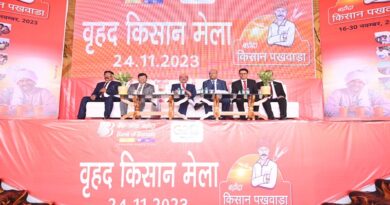From Double-Deckers to Neighborhood E-Buses: Delhi Govt’s Next Moves in E-Mobility Plans
New Delhi: After inaugurating 500 e-buses, solidifying Delhi’s status as the city with the largest fleet of electric buses in India, the capital is now targeting two additional objectives: the introduction of double-decker e-buses and the deployment of small 9-meter buses to enhance last-mile connectivity between Metro stations and various residential areas.
The Delhi Transport Department is actively exploring the procurement of double-decker e-buses from existing manufacturers. Simultaneously, the city plans to introduce more than 2,000 smaller 9-meter buses, serving as neighbourhood circulators connecting posh and unauthorized colonies with Metro stations. This initiative aims to have these buses operational every month throughout 2024.
L-G VK Saxena, Chief Minister Arvind Kejriwal, Transport Minister Kailash Gahlot, and Transport Secretary Ashish Kundra flagged off the lot of 500 e-buses at the Indraprastha Depot. Said the CM: “Today, 500 more electric buses have been included in the fleet of the Transport Department. For this, I congratulate the people of Delhi. Now, Delhi has 1,300 electric buses, making Delhi number one in terms of electric buses in the country. Our efforts to strengthen Delhi’s transportation system will continue.”
Sources familiar with the matter revealed that the introduction of 2,080 9-meter buses is a significant step, accounting for more than 35% of Delhi’s targeted 8,280 e-buses by 2025. This goal is part of the broader plan to have a consolidated public bus fleet of 10,480. Additionally, the government is actively exploring the introduction of double-decker e-buses, with both the Lieutenant Governor and Chief Minister expressing a favorable stance on expediting this process, despite the complex traffic conditions in Delhi compared to Mumbai.
Regarding the delivery of e-buses, out of the contracted 5,880 e-buses, 1,300 have been delivered, and the arrival of 100 to 150 9-meter buses is scheduled to begin in January. These buses will be supplied by two separate companies on an alternate-month basis. The government aims to have all 2,000 small buses for last-mile connectivity operational by the end of 2024, following the approval of the prototype. This initiative reflects the ongoing commitment to enhance public transportation and reduce the environmental impact of traditional buses in Delhi.






Pingback: carts vape
Pingback: arduino
Pingback: บริษัทรับสร้างบ้านเชียงใหม่
I appreciate, cause I found exactly what I was looking for. You have ended my four day long hunt! God Bless you man. Have a nice day. Bye
Pingback: cat888
Pingback: ทางเข้าpg
Pingback: แผ่นปูทางเดิน
Pingback: เล่นเกมไพ่ดัมมี่ กับเว็บพนันออนไลน์เว็บไหนดี
Pingback: ใบพัดมอเตอร์
Pingback: sexy chat
https://www.telqq.com Telegram群组,Telegram群组导航。收录Telegram上的优质频道和群组,打造一个高质量Telegram导航。TGNAV收录整理了Telegram上的许多优质频道、群组、机器人,帮助用户发现更多优质的群组。
Pingback: dark168
Thank you, I have just been searching for info approximately this subject for a while and yours is the best I have came upon so far. However, what about the bottom line? Are you positive concerning the supply?
Pingback: fruit cash
Pingback: รับสร้างเกม
Thank you for every other magnificent post. Where else may just anyone get that type of info in such a perfect means of writing? I’ve a presentation next week, and I’m on the look for such info.
Pingback: pgslot168
Pingback: นำเข้าสินค้าจากจีน